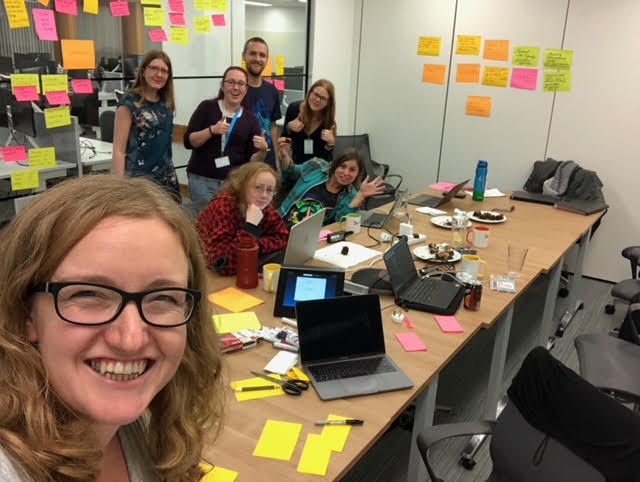The Turing Way
| Test | Status |
|---|---|
| Netlify build |  |
| No Latin Phrases | |
| No Large Files | |
| No "Lorem Ipsum"s |
The Turing Way is a lightly opinionated guide to reproducible data science. You can read it here: https://the-turing-way.netlify.com. You're currently viewing the project GitHub repository where all of the bits that make up the guide live, and where the process of writing/building the guide happens.
Our goal is to provide all the information that researchers need at the start of their projects to ensure that they are easy to reproduce at the end.
This also means making sure PhD students, postdocs, PIs and funding teams know which parts of the "responsibility of reproducibility" they can affect, and what they should do to nudge data science to being more efficient, effective and understandable.
Table of contents:
🎧 If you prefer an audio introduction to the project, our team member Rachael presented at the Open Science Fair 2019 in Porto and her demo was recorded by the Orion podcast. The Turing Way overview starts at minute 5:13.
About the project
Reproducible research is necessary to ensure that scientific work can be trusted. Funders and publishers are beginning to require that publications include access to the underlying data and the analysis code. The goal is to ensure that all results can be independently verified and built upon in future work. This is sometimes easier said than done. Sharing these research outputs means understanding data management, library sciences, software development, and continuous integration techniques: skills that are not widely taught or expected of academic researchers and data scientists. As these activities are not commonly taught, we recognise that the burden of requirement and new skill acquisition can be intimidating to individuals who are new to this world. The Turing Way is a handbook to support students, their supervisors, funders and journal editors in ensuring that reproducible data science is "too easy not to do" even for people who have never worked in this way before. It will include training material on version control, analysis testing, and open and transparent communication with future users, and build on Turing Institute case studies and workshops. This project is openly developed and any and all questions, comments and recommendations are welcome at our github repository: https://github.com/alan-turing-institute/the-turing-way.
The team
This is (part of) the project team planning work at the Turing Institute. For more on how to contact us, see the ways of working document.
Contributing
🚧 This repository is always a work in progress and everyone is encouraged to help us build something that is useful to the many. 🚧
Everyone is asked to follow our code of conduct and to checkout our contributing guidelines for more information on how to get started.
If you are not familiar or confident contributing on GitHub, you can also contribute a case study and your tips and tricks via our Google submission form.
Citing The Turing Way
You can reference The Turing Way through the project's Zenodo archive using DOI: 10.5281/zenodo.3233853. DOIs allow us to archive the repository and they are really valuable to ensure that the work is tracked in academic publications.
The citation will look something like:
The Turing Way Community, Becky Arnold, Louise Bowler, Sarah Gibson, Patricia Herterich, Rosie Higman, … Kirstie Whitaker. (2019, March 25). The Turing Way: A Handbook for Reproducible Data Science (Version v0.0.4). Zenodo. http://doi.org/10.5281/zenodo.3233986
You can also share the human-readable URL to a page in the book, for example: https://the-turing-way.netlify.com/reproducibility/03/definitions.html, but be aware that the project is under development and therefore these links may change over time. You might want to include a web archive link such as: https://web.archive.org/web/20191030093753/https://the-turing-way.netlify.com/reproducibility/03/definitions.html to make sure that you don't end up with broken links everywhere!
We really appreciate any references that you make to The Turing Way project in your and we hope it is useful. If you have any questions please get in touch.
Get in touch
We have a gitter chat room and we'd love for you to swing by to say hello at https://gitter.im/alan-turing-institute/the-turing-way. That room is also synchronised with Matrix at #the-turing-way:matrix.org and you're welcome to join us there if you prefer.
We also have a tiny letter mailing list to which we send monthly project updates. Subscribe at https://tinyletter.com/TuringWay.
You can contact our community manager Malvika Sharan by email at msharan@turing.ac.uk. Alternatively, you can contact the lead investigator Kirstie Whitaker by email at kwhitaker@turing.ac.uk.
Contributors
Thanks goes to these wonderful people (emoji key):
This project follows the all-contributors specification. Contributions of any kind welcome!




